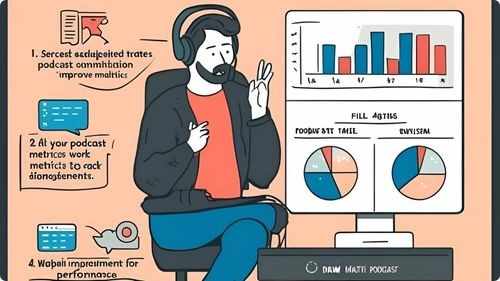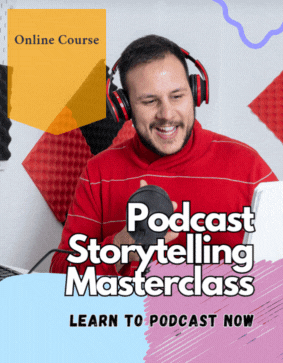The Future Mark Zuckerberg Is Trying To Build
3,699,635 View
Share this Video
- Publish Date:
- July 1, 2025
- Category:
- Learn to Podcast
- Video License
- Standard License
- Imported From:
- Youtube
Tags
The Huge Conversation with Mark Zuckerberg...
I interviewed Meta CEO Mark Zuckerberg before Connect. There are not many people with more power over our future. Right now, Mark Zuckerberg and his team are imagining the future billions of people might live in, soon, and building towards it. So, in this conversation, my goal is to figure out what that future looks like. To paint a picture of the future Mark Zuckerberg is trying to build, so that you can decide for yourself what you think of it.
We talked about the Meta's new Orion prototype AR glasses, creating holograms and the Star Trek universal translator, generative AI changing social media, big trends in human connection, open sourced AI, Ray Ban Meta glasses and Quest 3S, the biggest genuine question on his mind right now, and more...
Welcome to the first episode of our new series, Huge Conversations…
Special thanks to Derek Thompson, for his generous guidance on my first long-form interview!
Chapters:
0:00 What is Mark Zuckerberg trying to build?
2:08 Meta's new Orion prototype AR glasses
4:42 How do Meta's Orion glasses work?
6:55 What's the future of AR?
9:50 What's the future of VR?
11:36 What is Meta trying to build?
13:18 Haptics is hard
17:18 Why does VR feel real?
20:16 Why are we having trouble connecting?
24:27 What should we use AI for?
28:17 What wouldn't he want his kids using AI for?
31:47 How will generative AI change social media?
35:43 What concerns does he see as most legitimate?
39:26 Why care about open source?
43:38 What is his biggest genuine question?
You can find me on Instagram here: https://www.instagram.com/cleoabram
On TikTok here: https://www.tiktok.com/@cleoabram
Or on Twitter here: https://twitter.com/cleoabram
Bio:
Cleo Abram is a video journalist who produces Huge If True, an optimistic show about science and technology. Huge If True is an antidote to the doom and gloom, helping a wide audience see better futures they can help build. In each episode, Cleo dives deep into one innovation that could shape the future. She has explored humanoid robots at Boston Dynamics, supersonic planes at NASA, quantum computers at IBM, the Large Hadron Collider at CERN, and more. Every episode mixes high quality animations and detailed scripts with relatable vlog-style journeys, taking the audience along for an adventure to answer the question: If this works, what could go right? Previously, Cleo was a video producer at Vox and directed for Explained on Netflix. She was the host of Vox’s first ever daily show, Answered, as well as co-host of Vox’s YouTube Originals show, Glad You Asked.
Vox: https://www.vox.com/authors/cleo-abram
IMDb: https://www.imdb.com/name/nm10108242/
Gear I use:
Camera: Sony A7SIII
Lens: Sony 16–35 mm F2.8 GM
Audio: Sennheiser SK AVX and Zoom H4N Pro
Music: Musicbed, Tom Fox
—
Welcome to the joke down low:
How many symbols do you need to type on a keyboard to make a heart?
Less than three
Find a way to use “heart” in a comment to let me know you’re a real one who made it to the end of the description :)
#Orion #MetaConnect #MarkZuckerberg #Technology
-----------------------------------------
How to Start a Podcast - Podcasting Made Easy
Podcasting Made Easy is your ultimate guide to launching a successful show—fast, fun, and with zero overwhelm. Taught by podcast pioneer Scott Paton, this bestselling course walks you through setup, hosting, publishing, and growth strategies. With over 32,000 students, you’ll learn how to use tools like Libsyn, reach Spotify and Google Podcasts, and even build a podcasting business. Whether you're brand new or ready to scale, Power Podcasting helps you grow influence, relationships, and revenue—all while whispering directly into the ears of your ideal audience. Ready to get your voice heard and change lives?
3 Must-Know Podcasting Tips for Your Show
Encouraging Listener Interaction and Feedback

Fostering interaction and feedback from your listeners can enhance engagement and improve your podcast’s content. Invite listeners to share their thoughts, questions, and suggestions through various channels such as social media, email, or your podcast’s website. Incorporate listener feedback into your episodes by addressing common questions or discussing popular topics, making your audience feel valued and involved. Create opportunities for interaction, such as Q&A sessions, polls, or live recordings, to further engage your listeners. Responding to comments and acknowledging feedback builds a strong community around your podcast, encouraging loyalty and word-of-mouth promotion.
Analyzing Podcast Metrics to Improve Performance

Monitoring and analyzing podcast metrics is crucial for understanding your audience and improving your show’s performance. Track key indicators such as download numbers, listener demographics, episode completion rates, and audience retention. Use analytics tools provided by your hosting platform or third-party services to gain insights into listener behavior and preferences. Identify which episodes perform best and analyze the factors contributing to their success, such as topics, guests, or formats. Pay attention to feedback and reviews to gauge audience satisfaction and areas for improvement. Regularly reviewing your metrics allows you to make informed decisions, optimize your content strategy, and enhance the overall quality and reach of your podcast.
Crafting Compelling Podcast Introductions

Your podcast introduction sets the tone for each episode and captures the listener’s attention from the start. Begin with a brief and impactful summary of the episode’s topic to inform your audience about what to expect. Use a consistent musical theme or jingle to create brand recognition. Introduce yourself and any co-hosts clearly, establishing a personal connection with your listeners. Incorporate a hook, such as a provocative question or an interesting fact, to pique curiosity. A well-crafted introduction not only engages listeners but also reinforces your podcast’s identity and purpose, encouraging them to continue listening.
Frequently Asked Questions
How can I create a podcast script without sounding scripted?
Outline key points to stay organized, use conversational language, and practice speaking naturally. This approach ensures coherence while maintaining an authentic and engaging tone.
What legal considerations should I be aware of in podcasting?
Ensure you have rights to any music or content used, obtain necessary permissions for guest appearances, and adhere to copyright laws. Consider including disclaimers and privacy policies as needed.
What software is best for recording and editing podcasts?
Popular options include Audacity, which is free and user-friendly, and Adobe Audition, which provides advanced editing features. Choose software that fits your skill level and editing needs.
What is a podcast hosting service and why do I need one?
A podcast hosting service stores your audio files and distributes them to various platforms. It provides essential analytics, ensures reliable delivery, and often offers tools for monetization and audience engagement.
Statistics
- Podcasts that offer unique and niche content are 35% more likely to build a dedicated listener base.
- Listeners are 50% more likely to subscribe to podcasts that offer regular episode releases.
- Investing time in marketing can increase a podcast’s audience by up to 50% annually.
- About 50% of podcast listeners prefer shows that offer a mix of solo and interview episodes.
- About 60% of podcasters find that offering premium content subscriptions generates additional revenue.
- On average, podcasters spend about 10 hours per episode from planning to publishing.
- Investing in professional editing services can enhance the overall quality of a podcast, leading to a 30% increase in positive feedback.
- Podcasts that regularly update their equipment report a 40% improvement in audio quality and listener satisfaction.
- Approximately 65% of podcasters monetize their shows through sponsorships and advertising.
- Listener reviews and ratings contribute to a 25% increase in podcast discoverability.
- Listeners prefer podcast episodes that range between 30 to 45 minutes, with 65% favoring this duration.
- Podcasts that include detailed show notes experience a 50% increase in listener engagement.
- Podcasts with eye-catching cover art are 45% more likely to attract new listeners.
- Genres such as true crime, technology, and personal development are among the most popular, attracting over 70% of listeners.
- Engaging storytelling techniques can increase listener retention rates by up to 50%.
- Podcasts that engage with their audience through email newsletters see a 30% higher retention rate.
External Links
zoom.us
inc.com
canva.com
listennotes.com
screencast-o-matic.com
apple.com
podcastinsights.com
mailchimp.com
podcastitalia.com
podcastcareers.com
convinceandconvert.com
shutterstock.com
hootsuite.com
podcastpage.io
podcastgrandcentral.com
ahrefs.com
buzzsprout.com
How To
How To Ensure Legal Compliance in Podcasting
Maintaining legal compliance in podcasting is essential to avoid potential issues and protect your content. Start by understanding copyright laws, ensuring you have the rights to use any music, sound effects, or third-party content featured in your podcast. Obtain necessary permissions or licenses for copyrighted material to prevent infringement. If you interview guests, have them sign release forms granting you the rights to use their voice and contributions. Include disclaimers if your podcast provides advice or information that could be acted upon by listeners. Additionally, comply with advertising regulations by clearly disclosing sponsored content or advertisements. Familiarize yourself with privacy laws, especially if you are collecting listener data through newsletters or websites. Staying informed and adhering to legal requirements safeguards your podcast’s integrity and longevity.
Did you miss our previous article...
https://podcasting-unleashed.com/learn-to-podcast/how-to-start-a-podcast-with-descript-the-ultimate-beginners-guide















